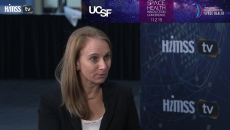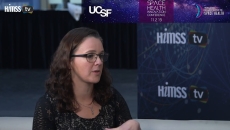Telehealth
Danielle Carroll, postdoctoral scholar and orthopaedic surgeon at UCSF, discusses the challenges of medical treatment in remote settings, including deep space, and how space health can learn from global health.
Dr. Jacqueline Shreibati, former chief medical officer of AliveCor, discusses the company's personal ECG products and the industry's embrace of consumer-friendly offerings.
Bryan Poteet, CEO and co-founder of Continuity Health Solutions, details how the home medical device ecosystem has changed over the past decade.
The bedside teams at RSFH's three hospitals will be supported on a 24/7 basis by Advanced ICU Care's team of intensivists and nurses.
HIMSS European eHealth Survey findings include telemedicine's growing importance and why the Nordics and Dutch are digital health role models, say Jörg Studzinski, with HIMSS Analytics, and Jochen Messemer, with McKinsey & Company.
As the care delivery platform becomes more legitimate and accepted, governments, payers and providers are coping with the changes it will bring.
Duke Clinical Research Institute's Dr. Ann Marie Navar says the health tech industry can't just cater to those who can afford pricey smartphones and wearables, but must instead close gaps in care.
The science community continues to evaluate the risks of space travel, says Zelia Worman, support scientist at the Translational Research Institute for Space Health.
The proliferation of digital personal assistants and other voice interfaces have opened the door for personable AI care platforms, says Stuart Patterson, CEO of LifePod Solutions.
While the shift is necessary, the transition period will likely see hackers targeting newly vulnerable information, said Halamka.






